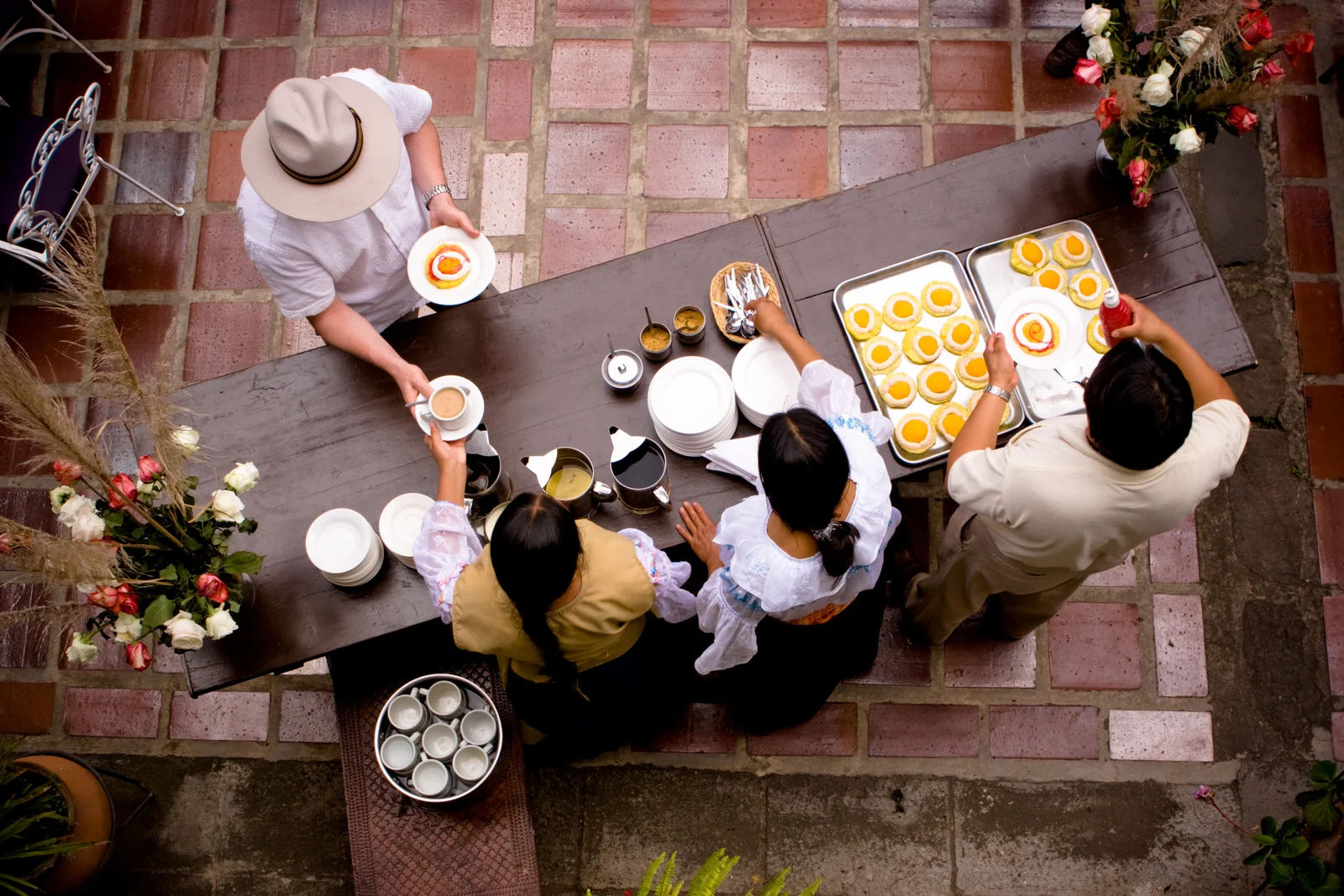- About Us
- Courses
- Students
- Forms
- Appeal and Complaint Form
- Application for Deferral, Suspension and Withdrawal
- Application for Leave Form
- Assessment Extension Form
- Course Variation Form
- Credit Transfer Application Form
- Enrolment Form (Existing Students)
- Pre-training Review Form
- Refund Application Form
- Student Application Form (New Application)
- Resources
- Our Agents
- News
- Contact Us

Get In Touch With Us
How to Choosing the Right Career in Hospitality and Culinary Arts in Melbourne
Table Of Contents
ToggleIntroduction: Exploring Career Opportunities in Hospitality and Culinary Arts
Australia boasts a vibrant hospitality and culinary arts industry, offering a plethora of career opportunities for those passionate about food, service, and management. From bustling city restaurants to serene countryside resorts, the industry provides a dynamic and fulfilling work environment. This guide aims to help you navigate the diverse career paths available and make an informed decision about your future in hospitality and culinary arts.

More Helpful Resource: SIT30821 – Certificate III in Commercial Cookery
How to Become a Chef in Australia: Steps and Requirements
Becoming a chef in Australia involves a blend of formal education, practical experience, and a passion for culinary creativity. Here are the steps to kickstart your journey:
- Educational Qualifications: Enroll in a culinary arts program at a recognized institution. Certificates III and IV in Commercial Cookery are popular choices.
- Apprenticeship: Gain hands-on experience through an apprenticeship program, which combines on-the-job training with classroom learning.
- Work Experience: Build your resume by working in various kitchen environments, from casual dining to fine dining establishments.
- Certification and Licensing: Obtain necessary certifications such as a Food Safety Supervisor certificate and meet any regional licensing requirements.
- Continuous Learning: Stay updated with industry trends and continue honing your skills through workshops and advanced courses.
For those seeking a reputable institution, consider applying to Blue Lotus College. Known for its comprehensive culinary programs and industry connections, Blue Lotus College offers the perfect foundation to launch your culinary career.

More Helpful Resource: How to Get a Job in the Hospitality Industry in Australia
Understanding Kitchen Management: Roles and Responsibilities
Kitchen management is crucial for the smooth operation of any culinary establishment. Key roles and responsibilities include:
- Head Chef/Executive Chef: Oversees the kitchen operations, menu planning, and staff management.
- Sous Chef: Acts as the second-in-command, assisting the head chef and supervising kitchen staff.
- Kitchen Manager: Focuses on administrative tasks such as ordering supplies, managing budgets, and ensuring compliance with health and safety regulations.
- Pastry Chef: Specializes in baking and dessert preparation, often managing a team of pastry cooks.
- Line Cook: Executes specific tasks on the kitchen line, ensuring timely and quality food preparation.

More Helpful Resource: SIT60322 Advanced Diploma of Hospitality Management
The Importance of Studying Hospitality Management
Studying hospitality management is crucial for several reasons, and it provides a comprehensive skill set that prepares individuals for a wide range of career opportunities within the hospitality industry. Here are some key points elaborating on the importance of studying hospitality management:
1. Comprehensive Skill Development
- Customer Service Excellence: A core component of hospitality management is mastering customer service. This involves understanding customer needs, providing exceptional service, and ensuring customer satisfaction, which is essential for repeat business and positive word-of-mouth.
- Business Acumen: Students learn the fundamentals of business operations, including financial management, strategic planning, and operational efficiency. This knowledge is vital for running profitable hospitality establishments.
- Marketing Strategies: Effective marketing is crucial for attracting and retaining customers. Hospitality management programs teach students how to create and implement marketing plans, utilize digital marketing tools, and understand market trends.
- Human Resources Management: Managing a team is a critical aspect of any business. Hospitality management courses cover recruitment, training, employee relations, and performance management, ensuring that students are prepared to build and maintain a productive workforce.

More Helpful Resource: The Best Places to Study Hospitality in Australia
2. Diverse Career Opportunities
- Hotel and Resort Management: Graduates can pursue careers managing hotels, resorts, and other lodging facilities, overseeing operations, and ensuring guests have a pleasant experience.
- Event Planning and Management: Skills in organizing and managing events, from corporate conferences to weddings, open doors to careers as event planners and coordinators.
- Food and Beverage Management: Knowledge of restaurant operations, menu planning, and food safety can lead to roles in managing restaurants, bars, and catering services.
- Tourism Management: Understanding the tourism industry and its trends allows graduates to work in travel agencies, tour companies, and tourism boards.
3. Global Industry Exposure
- International Career Prospects: The hospitality industry is global, providing opportunities to work in various countries and experience different cultures. This global exposure is invaluable for personal and professional growth.
- Networking Opportunities: Hospitality management programs often offer internships and industry connections, helping students build a professional network that can be beneficial throughout their careers.

4. Leadership and Management Skills
- Strategic Decision-Making: The ability to make informed decisions that enhance the profitability and sustainability of hospitality businesses is a key focus of hospitality management education.
- Problem-Solving Skills: Hospitality professionals must be adept at handling unexpected situations and resolving conflicts, ensuring smooth operations and guest satisfaction.
- Leadership Development: Courses in leadership help students develop the skills needed to lead teams effectively, inspiring and motivating employees to achieve organizational goals.
5. Industry-Specific Knowledge
- Trends and Innovations: Staying updated with the latest industry trends and technological advancements is crucial. Hospitality management programs ensure that students are well-versed in current practices and innovations.
- Sustainability Practices: With the growing focus on sustainable practices, hospitality management education includes training on eco-friendly initiatives, waste management, and sustainable business practices.
In conclusion, studying hospitality management equips individuals with the skills, knowledge, and experience needed to excel in a diverse and dynamic industry. It opens doors to a variety of career paths and provides a solid foundation for personal and professional growth.

More Helpful Resource: Top 5 Hospitality Courses in Melbourne
Upcoming Events
27
Jan.2025Australia Day
January 26 marks the anniversary of the arrival of the First Fleet in Australia. In 1994, it became a national public holiday.
10
Mar.2025Labour Day
Labour Day in Victoria is a public holiday that takes place on the second Monday in March. It’s a day to honor those who fought for better working conditions in Australia.
23
Mar.2025End of 1st Term
7
Apr.2025Start of 2nd Term
18
Apr.2025Good Friday
Public Holiday
19
Apr.2025Saturday before Easter Sunday
Public Holiday
20
Apr.2025Easter Sunday
Public Holiday
21
Apr.2025Easter Monday
Public Holiday
25
Apr.2025ANZAC Day
Public Holiday
9
Jun.2025King’s Birthday
Public Holiday
4
Nov.2025Melbourne Cup Day
Public Holiday
25
Dec.2025Christmas Day
Public Holiday
26
Dec.2025Boxing Day
Public Holiday
